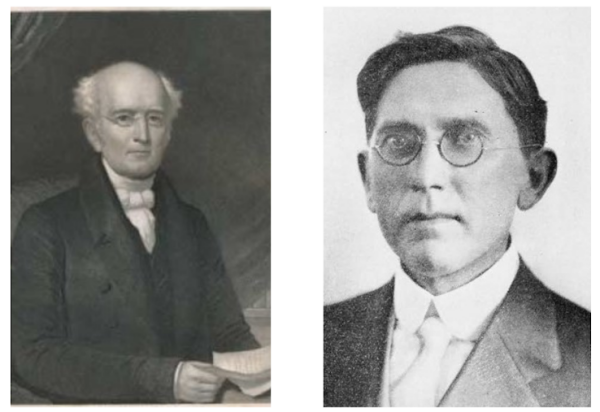(Receive our blog posts in your email by clicking here. If the author links in this post are broken, please visit our Free PDF Library and click on the author’s page directly.)
The fourteenth chapter of the Westminster Confession of Faith provides instruction concerning saving faith. In the opening paragraph, the following is stated:
The grace of faith, whereby the elect are enabled to believe to the saving of their souls, is the work of the Spirit of Christ in their hearts, and is ordinarily wrought by the ministry of the Word, by which also, and by the administration of the sacraments, and prayer, it is increased and strengthened.
By the infinite, eternal, and unchanging mercy of God, saving faith in Jesus Christ is instigated in a redeemed sinner’s heart by the work of the Holy Spirit; saving faith is a testimony to God’s grace (Jn. 3:8; 1 Cor. 12:3; Eph. 2:8; Titus 3:5). Furthermore, the confession teaches that saving faith is “ordinarily wrought by the ministry of the Word.” That is to say, that it is the normal course of action for the Holy Spirit to instigate saving faith through the reading, but especially, the preaching of God’s inspired Word. The apostle Paul testified to this when he penned the following:
How then shall they call on Him in whom they have not believed? And how shall they believe in Him of whom they have not heard? And how shall they hear without a preacher? (cf., Matt. 28:19-20; 1 Cor. 1:21).
Therefore, in echoing the authoritative teaching of God’s Word, the Westminster Confession has properly recognized that the Spirit ordinary initiates saving faith through the preaching of His Word. However, the confession also describes how saving faith is “increased and strengthened,” and it happens by the administration of the sacraments and prayer. Collectively, the preaching of God’s Word, the administration of the sacraments, and prayer are known as the “ordinary means of God’s grace” by which the Christian believes and is matured in his faith (see Westminster Larger Catechism Q&A 154).
Admittedly, there is much to be said about how the preaching of Scripture and administration of the sacraments are a means of grace, but this essay is reserved for considering prayer in this regard and what our Presbyterian forefather, Archibald Alexander, had to say about it.
To arrive at how prayer is a means by which the Spirit strengthens a Christian’s faith, it should be understood what prayer is. The Westminster Shorter Catechism defines prayer as “an offering up of our desires unto God, for things agreeable to his will, in the name of Christ, with confession of our sins, and thankful acknowledgment of his mercies” (Q&A 98; see Ps. 10:17; 62:8; Matt. 6:9-13; 7:7-8; Jn. 16:23-24; 1 Jn. 1:9; 5:14). While there are several elements to prayer noted, of importance is what the given definition of prayer assumes﹘it presupposes that there is access to the God of mercy. Hence, because of Christ’s accomplished work of salvation, redeemed sinners may offer up their desires unto God in order that they might be recipients of His grace. Thus, the author to the Hebrews has written:
Let us, therefore, come boldly to the throne of grace, that we may obtain mercy and find grace to help in time of need (Hebrews 4:16).
This is the essence of why prayer is a means of God’s grace. By prayer, the Christian may come before the throne of grace and find refuge in the Lord. Prayer is communion with the triune God and to commune with Him is no insignificant matter s the following verses reveal:
Lord, You have heard the desire of the humble; You will prepare their heart; You will cause Your ear to hear… (Ps. 10:17).
Trust in Him at all times, you people; pour out your heart before Him; God is a refuge for us (Psalm 62:8).
Accordingly, Archibald Alexander has also written of this matter in a small article titled “Prayer A Privilege” [Practical Truths (1857), pp. 36-38] Therefore, in an attempt to elaborate on the significance of prayer as a means of grace, consider Alexander’s thoughts from his article:
Although God is everywhere present, yet he is invisible. He is an all-pervading Spirit, yet is perceived by none of our senses. We behold his glorious works in the heavens and in the earth, and may learn something, by careful observation, of the general laws by which the material universe is governed; but still the great Architect is concealed. As far as reason can lead us, we seem to be shut out from all intercourse with our Maker; and whether prayer is permitted would remain for ever doubtful, were it not for divine revelation. We are not surprised, therefore, that some deists have denied that prayer is a duty, or that it can be available to the Deity. Indeed, considering man as a sinner, it would seem presumptuous for such a creature to obtrude himself into the presence of a holy God. Natural religion, as it is called, is not at all suited to the wants of sinners, but divine revelation teaches us that God may be acceptably approached by sinners only through the mediation of his Son.
Prayer is everywhere in the Bible recognized as proper and inculcated as a duty. But it is also a most precious privilege, one of the richest blessings conferred on man. It opens a method of intercourse and communion with our Father in heaven; it furnishes a refuge for the soul oppressed with sin and sorrow; it affords an opportunity to the heart overwhelmed with an intolerable weight of misery to unburden itself, to pour its griefs into the ear of one who can pity and help.
The moral effect of prayer is important. It humbles the soul, and excites veneration for the august and holy character of God. But though prayer brings into exercise the noblest acts and emotions of which our nature is capable, yet it would be a grand mistake to confine the efficacy of prayer to their moral effects. Prayer, when offered in faith, for things agreeable to the will of God, actually obtains for the petitioner the blessings which he needs. It has an efficacy to obtain forgiveness of sins, the gift of the Holy Spirit, and deliverance from a thousand evils. Prayer enters into the ears of the Lord of sabaoth; the prayer of faith is the mightiest engine upon earth. The Lord of heaven has given his word to answer prayer. He will be inquired of by his people, that he may bless them.
God can make any means effectual; and among the instituted means for the government of the world, and the preservation and comfort of his people, prayer holds a high place. The objection that God is immutable, and knows what we need, has no more force against prayer than any other means—no more force than if urged against the necessity of cultivating the ground in order to obtain a crop, or receiving food to nourish the body. The Christian life is sustained by prayer. By it every grace is exercised, every blessing is obtained. Without the sincere desires of the heart, prayer is nothing; it is worse—it is a mockery. He is the best Christian who prays most. As God is ever near to us, “for in him we live, and move, and have our being,” we are permitted to hold intercourse with him at all times, and in all places. We are commanded to “pray without ceasing”—to “be instant in prayer”—to “pray everywhere, lifting up holy hands.”
In prayer there is not only an outgoing of the soul to God, in acts of faith, love, and confidence, but there is an actual communication from God to the soul. Prayer is a holy converse—a fellowship with God. One hour spent in prayer, will accomplish more good than many employed in study or labor. Surely, then, it is good to draw nigh to God.



























